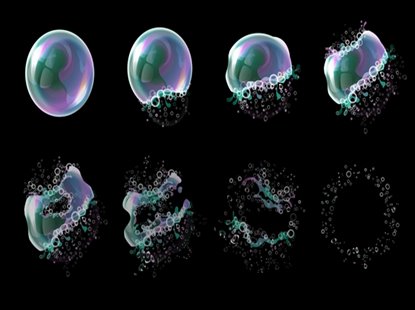How Defoamers Enhance Efficiency in Manufacturing and Production
How Defoamers Enhance Efficiency in Manufacturing and Production
Blog Article
The Duty of Defoamers in Enhancing Item Top Quality and Performance
In numerous making processes, the presence of foam can significantly prevent product quality and functional efficiency. Defoamers act as crucial ingredients that reduce this concern, ensuring smoother manufacturing workflows while boosting the aesthetic and practical characteristics of the end products (defoamers). Their application covers a plethora of markets, from food and drink to pharmaceuticals, where uniformity and dependability are paramount. Nonetheless, the choice of the proper defoamer can be critical to accomplishing optimum results, increasing important concerns concerning formulation compatibility and performance metrics that warrant more exploration.
Recognizing Defoamers
Recognizing the duty of defoamers is essential for maintaining product quality throughout numerous sectors. Defoamers are chemical ingredients created to protect against the development and lower of foam in fluid systems, which can adversely affect processes such as blending, loading, and surface area stress. Lathering can cause inadequacies, item issues, and endangered visual appeal, making defoamers an important part in making procedures.
In commercial applications, defoamers assist to improve product consistency and stability. In the paint and coatings sector, foam can conflict with the application process and the final coating. Likewise, in food and beverage manufacturing, extreme foam can hinder bottling and product packaging effectiveness (defoamers). The effective use of defoamers not only guarantees smoother production processes however also adds to exceptional item efficiency.
Furthermore, the option and formulation of a defoamer need to align with certain application requirements, such as compatibility with other active ingredients, effectiveness under differing temperature and pH conditions, and possible regulatory restrictions. Inevitably, understanding defoamers' functions and their relevance in various formulas is crucial for enhancing manufacturing and ensuring the best output.
Sorts Of Defoamers
Defoamers can be categorized right into numerous types based on their composition and system of activity. The key kinds include silicone-based, non-silicone organic, and not natural defoamers.
Silicone-based defoamers are amongst the most efficient, mostly as a result of their ability to spread out quickly on the liquid surface and interrupt foam development. Their one-of-a-kind chemical framework permits superior security, making them appropriate for high-temperature applications and environments with varying pH levels.
Non-silicone organic defoamers, typically made up of fatty acids or natural oils, are valued for their biodegradability and lower poisoning. These are typically utilized in food and beverage applications where safety and environmental impact are paramount.
Not natural defoamers, that include materials like talc or calcium carbonate, act by raising the thickness of the fluid, consequently minimizing foam stability. They are typically used in industrial processes where compatibility with various other products is not an issue.
Each sort of defoamer has distinct benefits and constraints, permitting tailored solutions depending upon the specific frothing concerns run into in different applications. Understanding these distinctions is vital for enhancing performance and attaining preferred product top quality.
Applications Throughout Industries
Numerous sectors take advantage of defoamers to enhance item high quality and operational performance. In the food and beverage field, defoamers are important in processes such as developing and dairy products manufacturing to avoid foam formation, which can bring about ineffectiveness and product variance. By controlling foam, suppliers can guarantee better yield and an extra uniform item.
In the pharmaceutical market, defoamers play a vital function click here now in the solution of liquid medicines, where extreme foam can impede blending and accurate application. Their usage assists keep the stability of the solutions and helps with smoother manufacturing processes.
The paint and finishes industry likewise counts on defoamers to improve the efficiency of items during application. By lessening foam, these ingredients ensure a smoother surface and boost the visual high qualities of the last item.

Advantages of Making Use Of Defoamers
While the application of defoamers differs throughout markets, their advantages constantly improve product quality and process efficiency. One substantial benefit is the reduction of foam formation during manufacturing procedures, which can or else bring about manufacturing hold-ups and disparities in product quality. By minimizing foam, defoamers make it possible for a smoother circulation of materials, facilitating more reliable operations and reducing the chance of tools malfunctions.
Additionally, the use of defoamers can improve the look and texture of end products. In industries such as finishings, paints, and food processing, too much foam can jeopardize the aesthetic looks and overall top quality, while the proper defoamer application makes certain an uniform coating and desirable features. Defoamers can contribute to cost financial savings by reducing waste throughout production and maximizing the use of raw products.

Picking the Right Defoamer
Picking the appropriate defoamer is critical for maximizing manufacturing procedures and making sure product quality. The choice of defoamer affects not just the performance of foam control however likewise the total efficiency characteristics of the end product. Elements to consider consist of the kind of application, the chemistry of the formula, and the environmental find conditions under which the item will certainly be utilized.
Different sectors might require certain defoamer kinds, such as silicone-based, natural, or polymeric defoamers. Recognizing the compatibility of the defoamer with the main ingredients is vital to avoid damaging reactions that could endanger product integrity. In addition, the defoamer's efficiency in various temperature levels and pH levels must be reviewed to make sure consistent efficiency.
Checking the defoamer in small-scale applications can supply valuable insights right into its performance and viability. Factor to consider of regulative conformity, especially in food, pharmaceuticals, and cosmetics, is extremely important in choosing a defoamer. Inevitably, an extensive analysis of these elements will certainly bring about the selection of a defoamer that not just controls foam efficiently yet also improves the quality and performance of the end product.
Conclusion

In conclusion, defoamers are important additives that dramatically boost item high quality and performance throughout different industries. The strategic option and application of defoamers lead to set you back savings, maximized source use, and increased consumer fulfillment.
Foaming can lead to inadequacies, item defects, and endangered visual appeal, making defoamers a critical part in manufacturing procedures.

Report this page